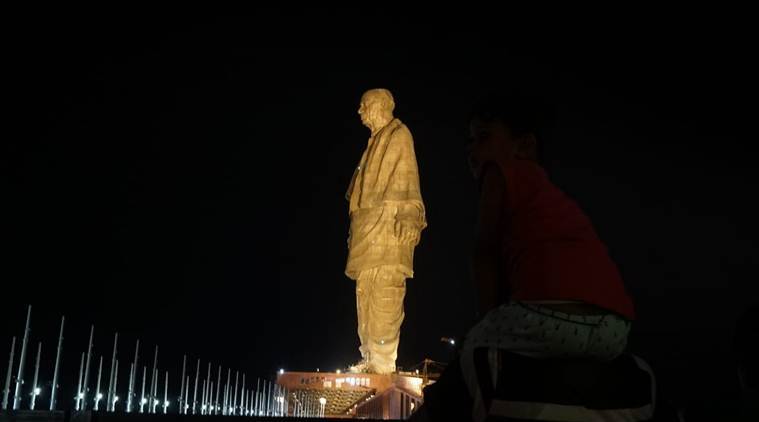 Statue of Liberty in Gujarat. (File)
Statue of Liberty in Gujarat. (File)
The Gujarat High Court (HC) on Friday dismissed a 2019 public interest litigation (PIL), moved by members of civil society, that had sought protection of livelihoods of tribals from five villages of Narmada district near the Statue of Unity at Kevadia colony.
The court observed that this could not be treated as a PIL since the right of possession that was being claimed was an individual right. It would be for the individual to establish that compensation was not paid to them and that they continued to be in possession of the land, the HC noted.
The division bench, headed by Chief Justice Vikram Nath, relied largely on an apex court constitutional bench judgment that had interpreted section 24 of the Right to Fair Compensation and Transparency in Land Acquisition, Rehabilitation and Resettlement Act (2013) in March this year.
The PIL was moved by activists Mahesh Pandya, Anand Mazgaonkar, Ashok Naik and Jatin Sheth in July 2019, on behalf of residents, villagers and tribals from the villages of Kevadia, Vagadia, Navagam, Limdi and Gora. The PIL had contended that while the state government acquired the land parcels in the five villages as long back as 1960, 1961 and 1962, the villagers continued to be in possession of the land and cultivate there. Citing Section 24 (2) of the act, it was submitted that if an acquired land remains unoccupied for five years, the acquisition lapses.
Prima facie, the HC held that every resident of the said villages claiming occupation and possession of the land will have to independently and individually claim any right of compensation that was not paid and the state government not having taken possession of their land all these years.
“Such rights are individual rights attached with each of the present residents who are claiming possession. Thus also, the petition on behalf of such 1,800 persons (295 families) cannot be entertained as a Public Interest Litigation,” observed the caveat judgment, noting third parties cannot act as representatives of such aggrieved individuals.
The HC further noted, “…Such claimants would have to establish and pass both the tests of compensation not being paid to them and also that they are continuing in possession.”
Another point raised in the PIL was that though compensation may have been awarded by the state government, it was not paid to the respective landowners. To this, the division bench noted that the SC Constitution Bench had held that compensation offered and not received by the claimant would amount to compensation being paid.
While dismissing the petition, however, the division bench reserved the rights of the individual residents to claim benefit of Section 24 (2) of the Act.